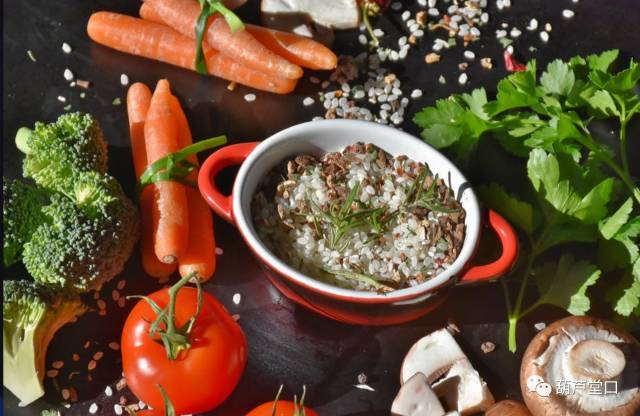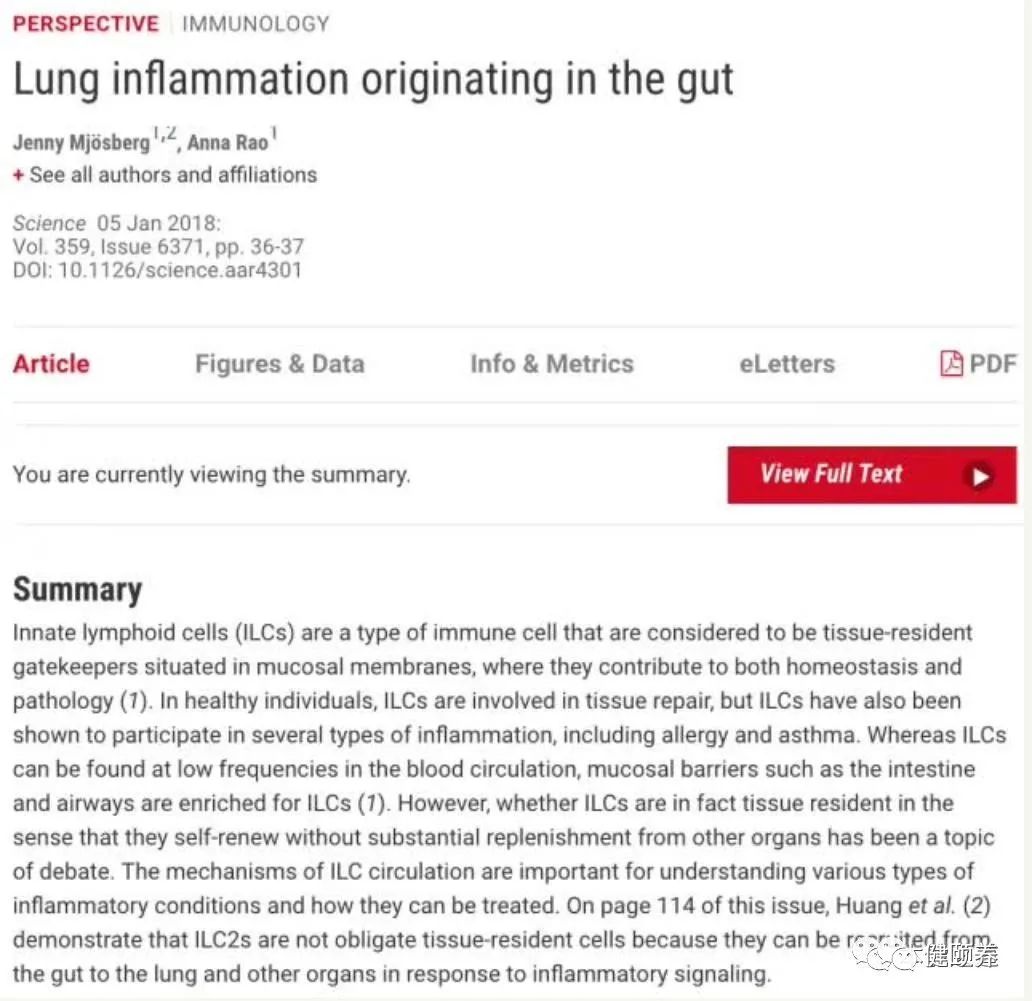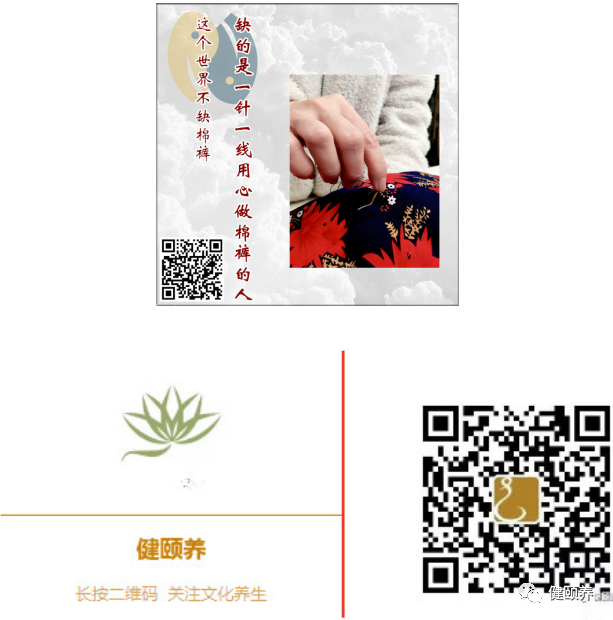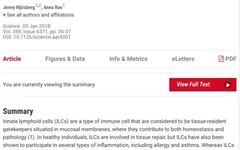
Thousands of years ago, the “Huangdi Neijing” (Yellow Emperor’s Inner Canon) revealed the relationship between the lungs and the large intestine. In today’s society, the emergence of many strange diseases is largely related to irregular eating habits, overeating, and the prevalence of various unhealthy foods, leading to frequent intestinal diseases such as colitis, rectitis, chronic enteritis, hemorrhoids, anal fissures, constipation, intestinal polyps, and colorectal cancer.
According to TCM organ theory, “the large intestine and lungs are interrelated”; when there is a problem with the lungs, it will affect the large intestine, and vice versa. American medicine has also proven the interrelationship between the lungs and the large intestine. An important study published in the journal “Science” on January 5, 2018, showed that “natural lymphocytes involved in homeostasis, asthma, and chronic obstructive pulmonary disease migrate from the gut to the lungs to participate in pulmonary immune responses.”
The journal “Science” is an academic journal published by the American Association for the Advancement of Science and is one of the most authoritative academic journals in the world. “Science” is known for publishing the best original research papers, as well as reviews and analyses of current research and scientific policy.
This cutting-edge research first discovered that inflammatory type 2 natural lymphocytes can migrate from the gut to the lungs and participate in lung inflammation. In simple terms, a certain type of lymphocyte can enter the lungs from the gut and function there. This corresponds to the theory of “the lungs and large intestine are interrelated” mentioned in the “Huangdi Neijing” over two thousand years ago.

Clinical medicine has found a pattern: if rectal cancer is not well controlled, it is likely to develop into lung cancer.
A real case: a patient with long-term gastrointestinal dysfunction did not improve after taking anti-inflammatory and diarrhea-controlling medications. Later, an experienced TCM doctor advised the patient to have a detailed examination of the lungs, which revealed early-stage lung cancer. Early-stage lung cancer is not easy to detect, but this patient was able to save their life due to early detection.
In the “Huangdi Neijing, Ling Shu, Ben Shu”: “The lungs are connected to the large intestine; the large intestine is the repository of the pathway”; the “Ling Shu Jing Mai Pian” states: “The lung Taiyin meridian starts from the middle jiao and connects to the large intestine…” explaining the direct connection between the lung and large intestine meridians.To some extent, protecting the gut is equivalent to protecting the lungs.
The gut is the most important digestive organ; it is also the largest detoxification organ in the body; and it is the largest immune organ. The gut is referred to as the second brain of a person, also known as the “abdominal brain” or “gut brain.” The gut has four major functions: digestion and absorption, immune defense, neural regulation, and toxin excretion.
99% of the nutrients needed by the human body are absorbed by the gut, and nearly half of the immune cells are attached to the gut, with the gut’s immune function accounting for 70% of the body’s overall immune function. Therefore, when lung function is compromised, it is very likely that there is a serious problem with the gut.
How can we achieve a “healthy gut”?
The 102-year-old centenarian, Premier Zhou Enlai’s proctologist, Dr. Lu (Lu Qi), still looks radiant and youthful. For over seventy years, he has led a team of nutritionists dedicated to researching gut health, developing a product called “Probiotic Gut Health” that focuses on gastrointestinal health and covers various benefits such as controlling high blood pressure, weight management, cancer prevention, enhancing immunity, managing dementia, skin care, and anti-aging, with a resistant starch content as high as 25.7%.
He himself is a perfect combination of longevity and health, medicine and wellness, wisdom and action. His research and development in the field of proctology are influencing the health of an increasing number of citizens. He emphasizes that a clean gut leads to clean blood, and health levels will naturally improve, which is also one of the fundamental methods for regulating high blood pressure diseases, obesity, and various sub-health conditions. His views coincide with those of Elder Nan.
Elder Nan also emphasized in his writings the importance of “knowing the quantity of food” in today’s society, which is worth everyone’s attention. He said: When meditating, if the legs easily become numb, it indicates that the gut is not clear and the blood is not clean. All diseases stem from diet.
One of the twenty rules in the “Baizhang Conglin” is “disease is treated by reducing food intake.” Without reducing food intake, eating too much actually feeds the parasites in the body. In Daoism, knowing the quantity of food is the first step in cultivation~ guarding the root gate. When the six senses are not indulged, eating should be done with mindfulness, choosing food based on rational thinking rather than just nutritional value.
What does “knowing the quantity of food” mean?It means knowing how much to eat at what age, how much to eat based on one’s body condition, and even the combination of nutrients, all emphasizing moderation; otherwise, it can lead to illness.In the past, older generations, despite lacking clothing and medicine, lived long lives because they ate less and did not have the so-called “nutrition” emphasized by modern science.Civilized society often leads to overeating, resulting in health issues.

Everyone has different constitutions and different diseases; it is essential to understand what one needs. Achieving “eating what I should eat” means eating what is appropriate for me. The first “eat” is a verb, while the second “eat” is a noun. This emphasizes what “I” should eat, not what others eat or what is trendy, but rather what is suitable for one’s own body constitution.Therefore, it is crucial to regularly reflect on one’s inner self, pay attention to the information the body provides, and learn to “be alone” as an important practice. In this state, gradually perceive the body, bodily sensations, experiences, and every signal from the body.
Many people want to solve their gut issues through the currently popular “fasting” method, but this not only fails to resolve the problem but can also exacerbate deficiencies in qi and blood, leading to pre-disease conditions. The issue of fasting is discussed in the “Ling Shu” volume six, “Thirty-One on the Gut,” emphasizing that the gut is responsible for digesting food, and human life relies on food for sustenance. When the qi in the stomach is insufficient, fasting can easily lead to problems. Those who do not practice regularly should not attempt fasting lightly, as it can lead to a depletion of life energy, akin to “overdrafting.”
Life depends on two things: air and food. The lungs are responsible for processing air, while the large intestine is responsible for transporting food.
In the Five Elements, both the lungs and large intestine belong to the Metal element; the lungs are Yin (internal), while the large intestine is Yang (external). The lungs are the “official of transmission” and govern qi; the large intestine is the “official of conduction,” transforming food and transporting waste. Because the lungs and large intestine are interrelated, the pathogenic qi of the large intestine can easily enter the lung meridian, and the pathogenic qi of the lung can also manifest in the large intestine.
The defensive qi resides beneath the skin; it is the body’s insulator and protector, serving as a buffer between us and the external environment, and is our frontline defense against external pathogens. Symptoms such as fever, “excess heat,” pharyngitis, toothache, acne, freckles, rosacea, abdominal distension, diarrhea, constipation, and upper limb paralysis are all manifestations of weak defensive qi. When we do not take measures to prevent external pathogens from invading, they can easily penetrate the body, affecting the Taiyin lung meridian and leading to severe lung diseases. This is why untreated colds and fevers can develop into pneumonia.
The lungs and large intestine mutually influence each other pathologically: Excess heat in the lungs leads to dryness and constipation in the large intestine; lung yin deficiency leads to dryness and constipation in the intestines; lung qi deficiency leads to constipation in the large intestine; lung qi counterflow leads to constipation in the large intestine; lung dysfunction leads to diarrhea in the large intestine; excess heat in the large intestine leads to constipation, causing lung qi to be obstructed, resulting in wheezing and coughing.
Therefore, skilled doctors will repel the attack of diseases at the body’s first line of defense, which is what the “Neijing” emphasizes as “treating the unmanifested disease.” Understanding the relationship between the lungs and large intestine helps us comprehend the relationship between the body’s qi mechanism and the movement of food and fluids, knowing the internal from the external and vice versa. When lung or intestinal diseases occur, one should not merely “blindly touch the elephant,” focusing only on the results, knowing only one aspect and not the other.


